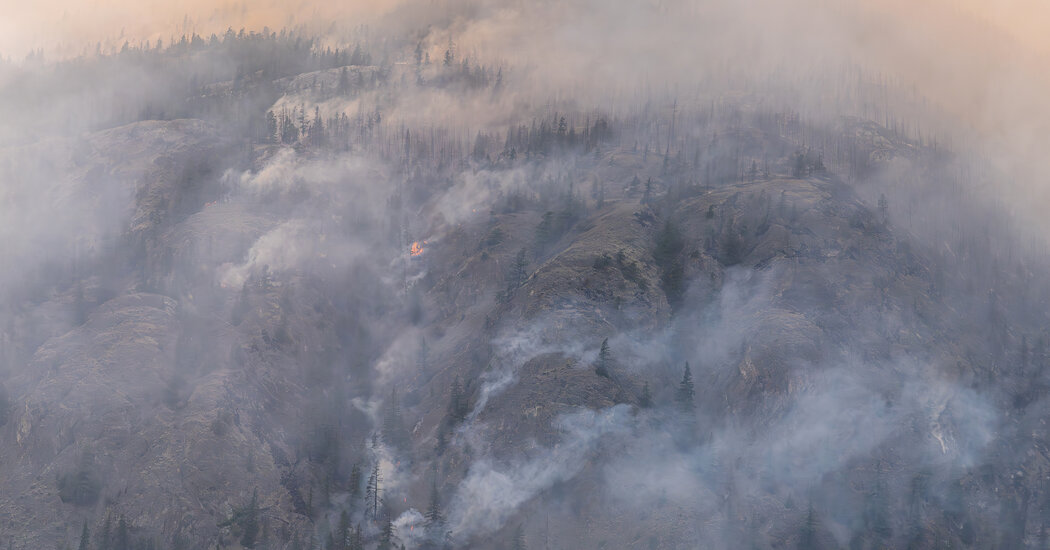Wildfire smoke from the Western United States and Canada is blowing across the Northeast, lowering air quality and endangering vulnerable populations.
Wildfire smoke from hundreds of fires burning in the West reached New England on Thursday afternoon. A long tendril of haze could lower air quality in cities along the coast, including in Delaware, New Jersey, Cape Cod, New Hampshire, New York City and even parts of Maine.
Last summer, Canada’s record wildfires at times blanketed smoke across the United States as far south as Florida, and the current fires have raised fears that this year could see a similar intensity.
Where are most of the fires?
Wildfires are burning across Western Canada and the Western United States, where 89 active wildfires had burned more than 1.6 million acres as of Thursday morning, with the most extreme fires concentrated in Oregon and Washington.
In Canada’s westernmost provinces of Alberta and British Columbia, more than 600 wildfires were actively burning and tens of thousands of people had been evacuated from their homes, including in Jasper, a popular tourist destination.
Officials in both British Columbia, and Calgary, Alberta’s largest city, warned of deteriorating air quality levels this week. Some forecasts were so low that Mike Flannigan, a professor of wildland fire at Thompson Rivers University in British Columbia, called them “horrific.”
“A warmer world means more fire,” Dr. Flannigan said. “These fires are consistent with what we expect with climate change.”
